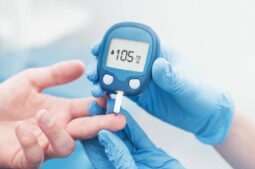

A gynaecological examination is an annual event for a woman, often scheduled after they have their first period or begin to have sex. These examinations are necessary for the prevention of gynaecological diseases, which occur more frequently the more advanced the society, and more formally the higher the educational level of the women.
If all goes well and there are no symptoms to indicate anything is wrong, a regular gynaecological examination is sufficient for a woman to keep track of her health. An interview (anamnesis), a cervical screening or Pap test, touching of the vagina with an abdominovaginal ultrasound test and breast examination (palpation for any tenderness) are the different tests woman experience in each routine gynaecological examination.
“For many women, a gynaecological examination is the only health test they take regularly. Fortunately, the level of awareness is high in this field of medicine in our society. Nevertheless, some women do not visit a gynaecologist until they are faced with a reproductive problem. Not many, but there are some.” explains Dr Javier Domingo, director of IVI Las Palmas.
The first appointment
“Usually, women should first visit their gynaecologist when they start to have sex, to check their health and to find out how to best protect against sexually transmitted diseases or plan contraception (if this is what they want). However, some girls who have problems with menstrual periods or ovulation, for example, should consult a specialist earlier,” reports the doctor.
After the first appointment, one visit per year to this specialist for the most basic examination is recommended. As the woman gets older, the examination includes special tests aimed at preventing future disease: “One good recommendation is to have the Human Papillomavirus (HPV) determination at age 35, to screen for the potential risk of cervical cancer. At age 45, a mammography should be added, as well as checking for problems with the thyroid or such as urinary incontinence,” says Dr Domingo.
When should we be concerned?
Each benign or malignant disease usually manifests itself with certain symptoms that alert us to a problem. Bleeding outside of the menstrual cycle, heavy bleeding during it, post-menopausal bleeding, pelvic pain, heavy bleeding, itching, burning, abdominal bloating or a breast lump are all signs that indicate you should visit a gynaecologist outside of your annual appointment.
“In any of those cases, tests would be made and further studies performed, leading to a diagnosis and remedy. The tests conducted in consultation visits are not usually definitive; so any positive result would need additional tests to confirm the first evidence found in consultation; e.g. a biopsy”, adds Domingo.




Comments are closed here.